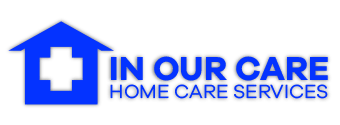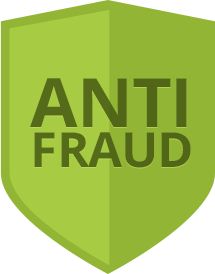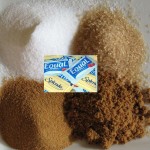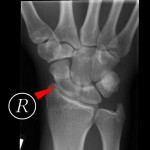Stop the frauds and scams against Seniors
What every older Canadian should know about Frauds and Scams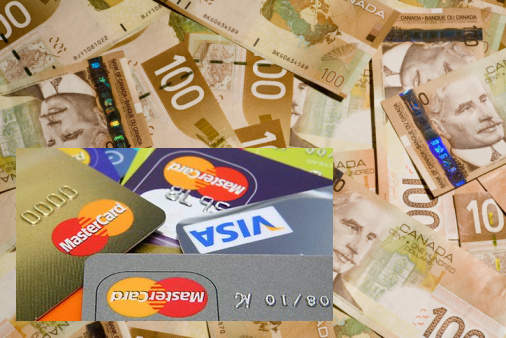
The numbers of seniors aged 65 and over is projected to more than double from 1.9 million in 2013, to 4.1 million, or 23.2 per cent, by 2036. By 2016, for the first time, seniors will account for a larger share of population than children aged 0–14.
Fraud is the number one crime against older Canadians. Though people of all ages can be victims of fraud, older people get targeted more than others. Some of the reasons are that they are often home during the day to answer the door or phone, they can be more trusting and they may not have family or friends close by to ask for a second opinion. People who commit frauds and scams are commonly called con artists. Con artists don’t just target people who have a lot of money. A con artist may steal a small amount from many people. They use a variety of ways to reach people, including the Internet, phone calls and even door-to-door visits. But con artists are not the only ones taking advantage of seniors. This also extends to fly by night contractors who will charge surmountable amounts of money for small jobs, fear-mongering clients into agreeing to pay for services not required (roof repairs, furnaces, air conditioners, driveways, windows, duct cleaning, etc.). This often results in the client either losing their down payment, poor workmanship, incomplete work, and no recourse of action for corrective action / refund. Unfortunately, the list of fraud opportunities, are endless and new schemes are invented and uncovered every day.
Recognize It – How to Spot a Scam?
 If it sounds too good to be true… it probably is not.
If it sounds too good to be true… it probably is not.
You have won a big prize in a contest that you don’t recall entering. You’re offered a once-in-a-lifetime investment that offers a huge return. You’re told that you can buy into a lottery ticket pool that cannot lose.
You must pay or you can’t play. “You’re a winner!” but you must agree to send money to the caller in order to pay for delivery, processing, taxes, duties or some other fee in order to receive your prize. Sometimes the caller will even send a courier to pick up your money.
You must give them your private financial information. The caller asks for all your confidential banking and/or credit card information. Honest businesses do not require these details unless you are using that specific method of payment.
Will that be cash…..or cash? Often criminal telemarketers ask you to send cash or a money order, rather than a cheque or credit card. Cash is untraceable and can’t be cancelled. And, crooks also have difficulty in establishing themselves as merchants with legitimate credit card companies.
The caller is more excited than you are. The crooks want to get you excited about this ‘opportunity’ so that you won’t be able to think clearly.
It is the Manager calling.
The person calling claims to be a government official, tax officer, banking official, lawyer, or some other person in authority.
The stranger calling wants to become your best friend. The person calls you by your first name and asks you a lot of personal or lifestyle questions (like how often do your grown children visit you). Criminals love finding out if you’re lonely and willing to talk. Once they know that, they’ll try to convince you that they’re you’re friend. After all, we don’t normally suspect our friends of being crooks.
It is a limited opportunity and you’re going to miss out. If you are pressured to make a big purchase decision immediately, it’s probably not a legitimate deal. Real businesses or charities will give you a chance to check them out or think about it.
Other common types of frauds and scams
Identity theft
Identity theft occurs when a con artist steals personal information from someone so they can pretend to be that person and then do things like apply for a credit card, take out a loan or mortgage, get a cell phone or withdraw bank funds. The con artist will try to get information such as a bank card number and personal identity number (PIN), credit card number, health card number, driver’s license and Social Insurance Number (SIN). Sometimes they will steal or copy the documents; sometimes all they need is the information. If your wallet is lost or stolen, or mail you are expecting goes missing, you should report it right away to your bank or credit union.
Credit / debit card frauds
Credit card and debit card fraud occurs when a con artist uses your card, or a copy, to make purchases or withdraw money from your account. Keeping your card in sight, memorizing your PIN, and shielding your hand when you enter your PIN are ways you can reduce the risk of your credit card or debit card information being stolen and misused.
Online scams
There are many online scams and new ones appear all the time. Some appear to be asking for your help; some say there is a problem with your bank account or tax return. Scam e-mails are often easy to spot because of spelling and other mistakes, but some can look like they are coming from a person or organization you know. If you are not sure about an e-mail—for example, if it asks you respond with personal or financial information or to go to another Web site and enter information there—call to check, and do not respond to the e-mail.
Phone and door-to-door scams
Phone and door-to-door scams are also very common. Someone will call or come to your door pretending to be a representative of a charity, an employee of a credit card company, or even a distant relative. You might be offered a free prize or trip. If you aren’t completely sure who you’re dealing with, do not give the person any money, information or permission to enter your home.
Sometimes people call or come to your door using high-pressure sales tactics to get you to buy something you don’t want or need, or to talk you into getting work done in / on your house and then overcharging you or doing a bad job. While this is not always illegal, it is wrong and should be reported.
Tips and safeguards
Keep all personal documents in a secure place. If you don’t need them, do not carry your birth certificate, passport or SIN card.
Never tell another person your PIN or account passwords and take care to cover your hand when entering your PIN at bank machines and when making store purchases.
Safely dispose of old bills, personal information, confidential letters or statements—shredding is best.
Do not click on pop-up windows or respond to e-mails, open attachments or go to Web site links sent by people you do not know. Your bank or credit union will not send you anything by e-mail unless you ask them to.
Never give out your credit card, bank account, or personal information to someone over the phone, at the door, or over the Internet unless you know the person or organization you are dealing with, or you made the contact. This sort of information is not personal identification or personal authentication.
Do not sign any agreement or contract to buy anything (service or goods) without giving yourself time to think it over. If a salesperson insists that an “offer” is “time limited” and you must decide that moment, it is probably better not to buy.
Be suspicious if someone you don’t know asks you to send them money or a cheque, or to return money they “accidentally” sent you.
Before hiring someone or agreeing to have work done on your home, ask for proof of identity and references and check them.
What should I do if I think I have been a victim of fraud or a scam?
All frauds and scams should be reported, even if you are embarrassed or feel the amount of money is too small to worry about. While you might not be able to get your money back, you can help stop the con artist from scamming other people.
Report all frauds and scams to your local police, or call Phone Busters at 1-888-495-8501.
Where can I find out more information on fraud?
There are some reliable on-line Government sources of information about frauds and scams. The Financial Consumer Agency of Canada Web site http://www.fcac.gc.ca provides information about your rights in dealing with banks and other financial institutions or visit www.seniors.gc.ca for additional general information.
What can I do to protect myself?
Be Cautious! You have the right to check out any caller by requesting written information, a call back number, references and time to think over the offer. Legitimate business people will be happy to provide you with that information. After all, they want the “bad guys” out of business too. Always be careful about providing confidential personal information, especially banking or credit card details, unless you are certain the company is legitimate. And, if you have doubts about a caller, your best defense is to simply hang up. It’s not rude – it’s smart. Remember, you can Stop Phone Fraud – Just Hang Up!
If you’re in doubt, it’s wise to ask the advice of a close friend or relative, or even your banker. Rely on people you can trust.
Watch out for those you know and care for
If you suspect that someone you know has fallen prey to a deceptive telemarketer, don’t critical of them for being naive. Encourage that person to share their concerns with you about unsolicited calls or any new business or charitable dealings. Assure them that it is not rude to hang up on suspicious calls. Keep in mind that criminal telemarketers are relentless in hounding people – some victims report receiving 5 or more calls a day, wearing down their resistance. And, once a person has succumbed to this ruthless fraud, their name and number will likely go on a “sucker list”, which is sold from one crook to another.
Report It – Who to Contact
It’s not always easy to spot phone scams, and new ones are invented every day. If you suspect that you may be a target of fraud, or if you have already sent funds, don’t be embarrassed – you’re not alone.
If you want to report a fraud, or if you need more information, contact the Canadian Anti-Fraud Centre:
Toll Free: 1-888-495-8501 – Email: info@antifraudcentre.ca
There are 4 types of Abuse: Physical, Psychological, Financial, Neglect
The OPP Seniors Issues Unit also provides following services to lessen victimization of Older Ontarians:
- Research and monitor crime trends involving Seniors,
- Develop community education,
- Develop police training and strategies, and
- Provide resource referrals
But I really do need a service done at my home, what do I do?
Of course as home owner there will be times when you need work done as part of routine maintenance, upgrades, modifications, renovation, painting and so on. First of all be in control and doing the calling & don’t agree to or sign anything. Get more than one quote outlining the services being provided, terms and conditions and does it meet your needs / objectives. What is the warranty on the work and ask for references of past work. If they want the job, it’s not an inconvenience to provide the information you request. If the work is of a nature that you’re not familiar with have a trusted family member act on your behalf… and review the information before agreeing to anything. During the work process, do not agree to upgrades and such. If any scope of work changes, have it in writing as an amendment to the original agreement with an explanation for the recommendation (in case you need to refer to it later).
Alternatively, you may contact us.
Chances are we’re already in your community providing personal care & services to seniors in their home. We are dedicated to caring and protecting our clients in their own Homes and Community. As such, protecting seniors from potential fraud and scams is a natural service we provide to ensure your service needs are understood, met and that you’re satisfied with the end result – without ever exposing you to any potential fraudulent interactions. Consider us as a shield against fraud as it pertains to home repairs & services.
Of course we are not with you at all times. So if you get a call about something that sounds suspicious – hang up. If you’ve opened your door and it’s a door to door sales representative trying to sell you something or a service, replacement of something or an inspection of some sort– hand them our card and say “please call these folks they will act on my behalf,” and close the door. Chances are we’ll never get a call from them! If we do get a call, we’ll collect the facts and discuss them with you before getting back to them. If it’s a scam, illegitimate or mass solicitation of services and you have not advised us a need – we will advise them that we’re not interested and to please refrain from going back to your door.
We will never partner with a contractor for services outside of our scope of work. Our business is to provide care, protection, security, and to do everything in our power to enrich the lives of the seniors we serve. Together we can put an end to this sort of crime.
Please contact us today, to discuss any challenges you may be facing and how our services can help you remain independent, protected, safe, and in you home / community.
You got questions, we have answers: (905) 785-2341 or email us at
